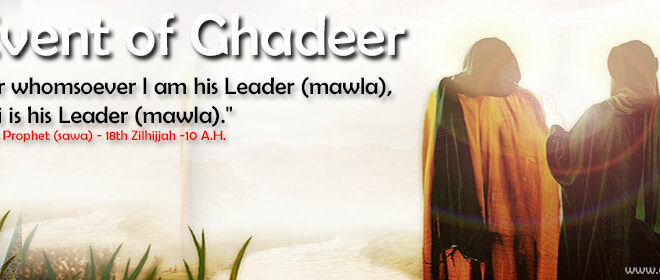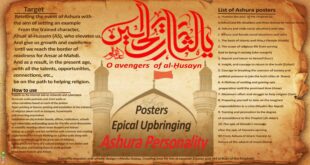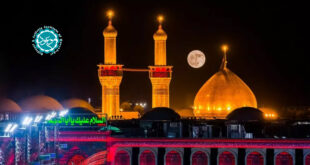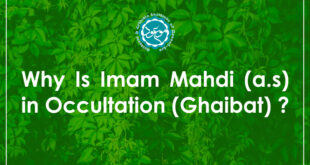The following is a description of the historic event of Ghadir Khumm. Click on the book icons below to see the detailed references backing up each key element of this event. The separation into contexts enables one to see how well each component of the event is attested in the sources.
For example, to see how many Sunni sources record the sentence uttered by the Prophet [s] to appoint Imam ‘Ali [a] – man kuntu mawlahu fa `Aliyyun mawlahu – click here: .
|
|
|
|
The Farewell Pilgrimage This was first time that the Muslims with this magnitude gathered in one place in the presence of their leader, the Messenger of Allah [s]. On his way to Makkah, more than seventy thousand people followed Prophet [s]. On the fourth day of Dhu’l-Hijjah more than one hundred thousand Muslims had entered Makkah. |
|
|
Date The date of this event was the 18th of Dhu’l-Hijjah of the year 10 AH (10 March 632 CE). |
|
|
Location After completing his last pilgrimage (Hajjatul-Wada’), Prophet [s] was leaving Makkah toward Madinah, where he and the crowd of people reached a place called Ghadir Khumm (which is close to today’s al-Juhfah). It was a place where people from different provinces used to greet each other before taking different routes for their homes. |
|
|
Revelation of Qur’anic Verse 5:67 “O Apostle! Deliver what has been sent down to you from your Lord; and if you don’t do it, you have not delivered His message (at all); and Allah will protect you from the people …” (Qur’an 5:67) The last sentence in the above verse indicates that the Prophet [s] was mindful of the reaction of his people in delivering that message but Allah informs him not to worry, for He will protect His Messenger from people. |
|
|
The Sermon On this day the Messenger of Allah [s] spent approximately five hours in this place; three hours of which he was on the pulpit. He recited nearly one hundred verses from The Glorious Quran, and for seventy three times reminded and warned people of their deeds and future. Then he gave them a long speech. The following is a part of his speech which has been widely narrated by the Sunni traditionists: |
|
|
Tradition of the Two Weighty Things (thaqalayn) The Messenger of Allah [s] declared: “It seems the time approached when I shall be called away (by Allah) and I shall answer that call. I am leaving for you two precious things and if you adhere to them both, you will never go astray after me. They are the Book of Allah and my Progeny, that is my Ahlul Bayt. The two shall never separate from each other until they come to me by the Pool (of Paradise).” [See also: Hadith al-Thaqalayn: A Study of its tawatur] |
|
|
Acknowledgement of Authority Then the Messenger of Allah continued: “Do I not have more right over the believers than what they have over themselves?” People cried and answered: “Yes, O’ Messenger of God.” |
|
|
Text (nass) of the Designation Then followed the key sentence denoting the clear designation of ‘Ali as the leader of the Muslim ummah. The Prophet [s] held up the hand of ‘Ali and said: “For whoever I am his Leader (mawla), ‘Ali is his Leader (mawla).” |
|
|
[In some narrations the word used was wali rather than mawla – with the same implication]
|
|
|
The Prophet [s] continued: “O’ God, love those who love him, and be hostile to those who are hostile to him.” |
|
|
These were the key parts of the speech of the Prophet [s]. There are also more detailed versions of this sermon which are recorded by many Sunni authorities. |
|
|
|
|
|
Revelation of Qur’anic Verse 5:3 “Today I have perfected your religion and completed my favour upon you, and I was satisfied that Islam be your religion.” (Qur’an 5:3) The above verse clearly indicates that Islam without clearing up matter of leadership after Prophet [s] was not complete, and completion of religion was due to announcement of the Prophet’s immediate successor. |
|
|
Hassan b. Thabit’s poetry He calls them, (on) the day of Ghadir, their Prophet |
|
|
Oath of Allegiance “Well done Ibn Abi Talib! Today you became the Leader (mawla) of all believing men and women.” |
|
|
Number of Companions in Ghadir Khumm Narrated by Zayd b. Arqam: Abu al-Tufayl said: “I heard it from the Messenger of Allah [s], and there was no one (there) except that he saw him with his eyes and heard him with his ears.” |
|
|
Revelation of Qur’anic Verse 70:1-3 On the day of Ghadir the Messenger of Allah summoned the people toward ‘Ali and said: “Ali is the mawla of whom I am mawla.” The news spread quickly all over urban and rural areas. When Harith Ibn Nu’man al-Fahri (or Nadhr Ibn Harith according to another tradition) came to know of it, he rode his camel and came to Madinah and went to the Messenger of Allah [s] and said to him: “You commanded us to testify that there is no deity but Allah and that you are the Messenger of Allah. We obeyed you. You ordered us to perform the prayers five times a day and we obeyed. You ordered us to observe fasts during the month of Ramadhan and we obeyed. Then you commanded us to offer pilgrimage to Makkah and we obeyed. But you are not satisfied with all this and you raised your cousin by your hand and imposed him upon us as our master by saying `Ali is the mawla of whom I am mawla.’ Is this imposition from Allah or from you?” The Prophet [s] said : “By Allah who is the only deity! This is from Allah, the Mighty and the Glorious.” On hearing this Harith turned back and proceeded towards his she-camel saying: “O Allah! If what Muhammad said is correct then fling on us a stone from the sky and subject us to severe pain and torture.” He had not reached his she-camel when Allah, who is above all defects, flung at him a stone which struck him on his head, penetrated his body and passed out through his lower body and left him dead. It was on this occasion that Allah, the exalted, caused to descend the following verses: “A questioner questioned about the punishment to fall. For the disbelievers there is nothing to avert it, from Allah the Lord of the Ascent.” (70:1-3) |
|
 Mouood Mouood English Edition
Mouood Mouood English Edition




